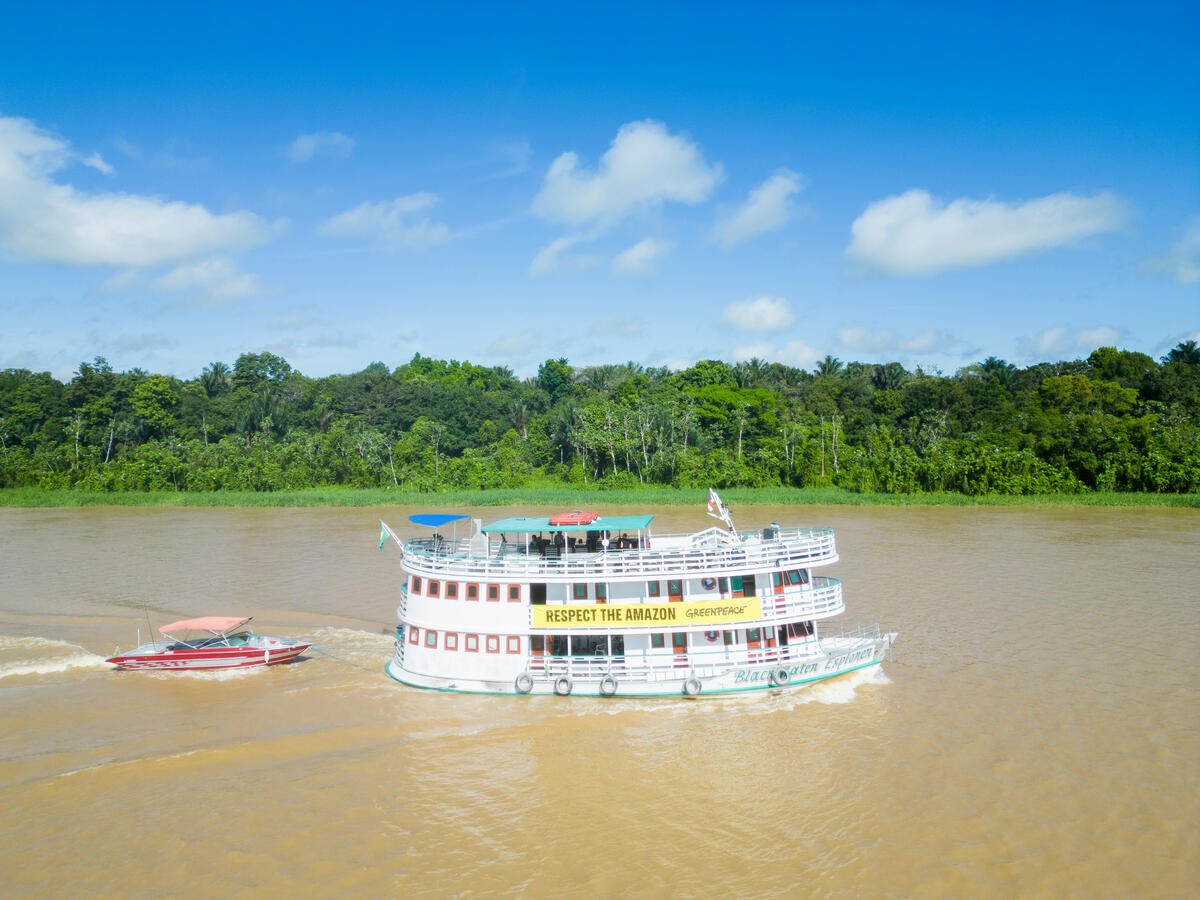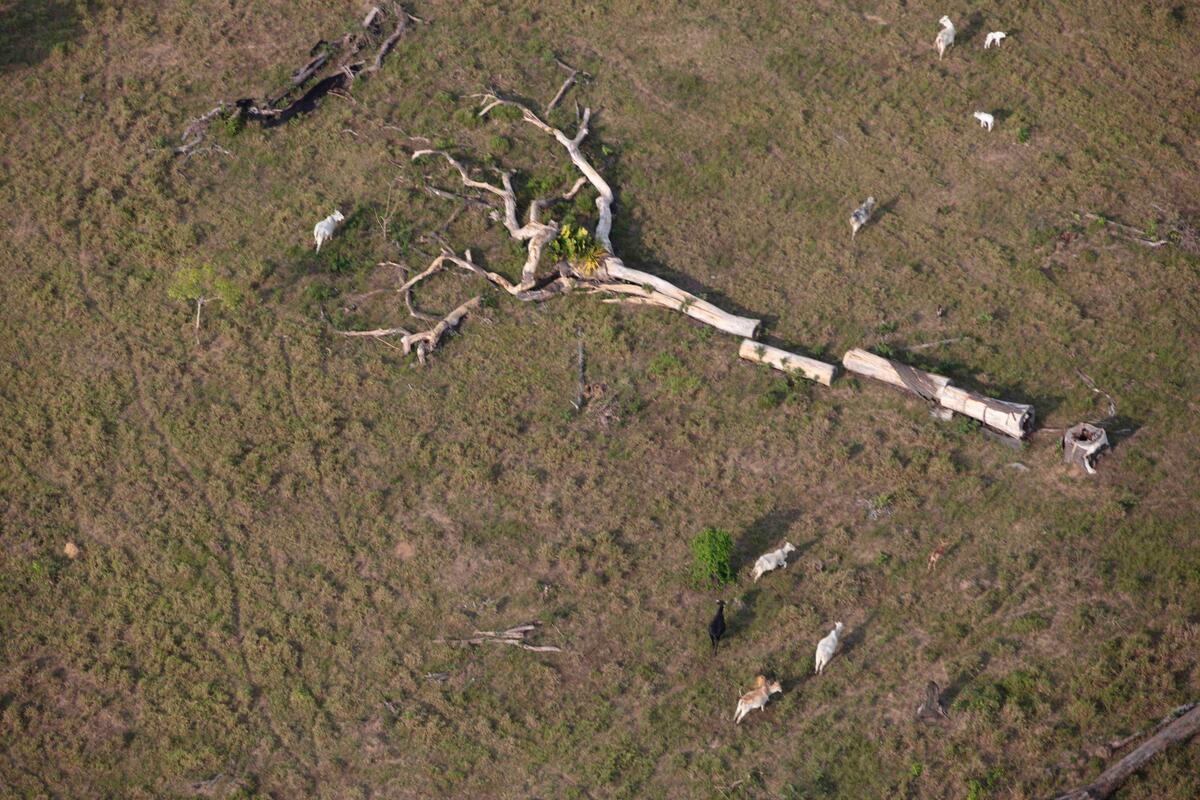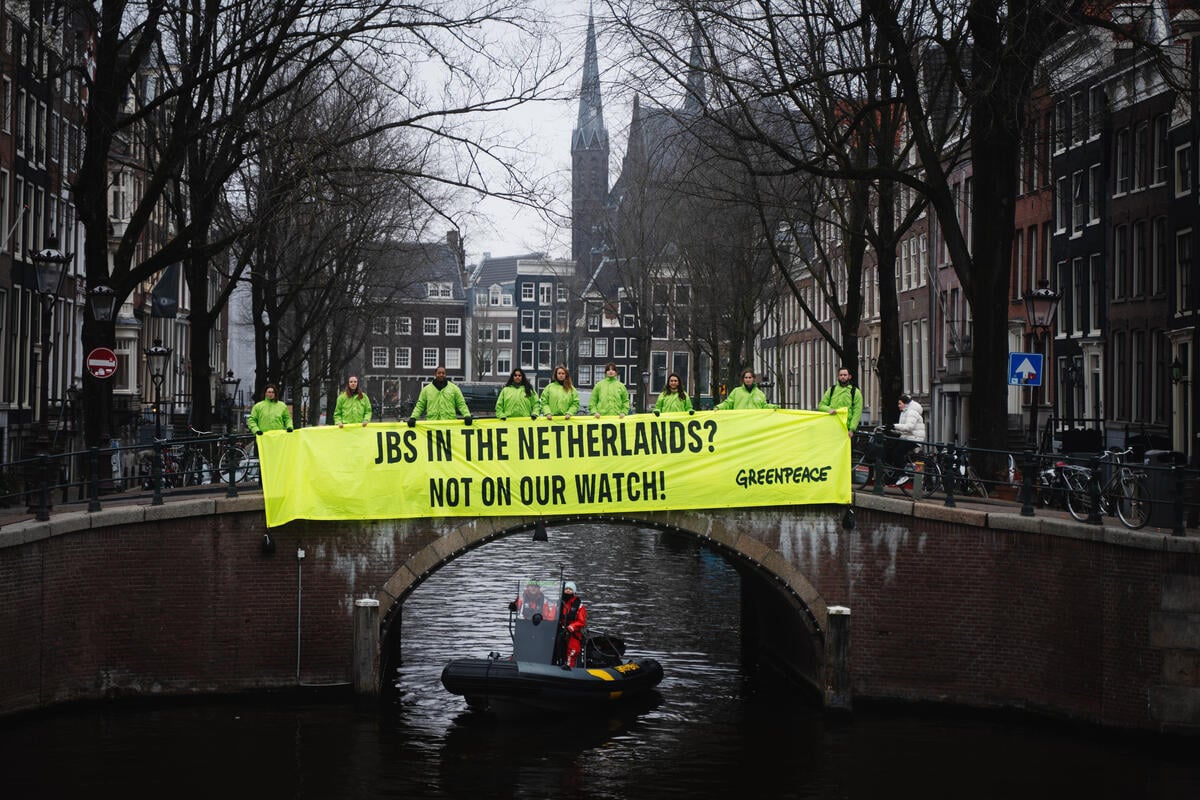Speaking truth to corporations has been the backbone of Greenpeace’s global forest campaign for over two decades. Putting pressure on companies buying products from forest destruction has successfully helped protect the Great Bear Rainforest in Canada, create moratoria on deforestation due to soya and cattle expansion in the Brazilian Amazon, and deliver multiple zero deforestation policies inside and outside Indonesia — as well as a myriad of other protections, regulations and steps towards safeguarding the world’s forests from further destruction and senseless greed.
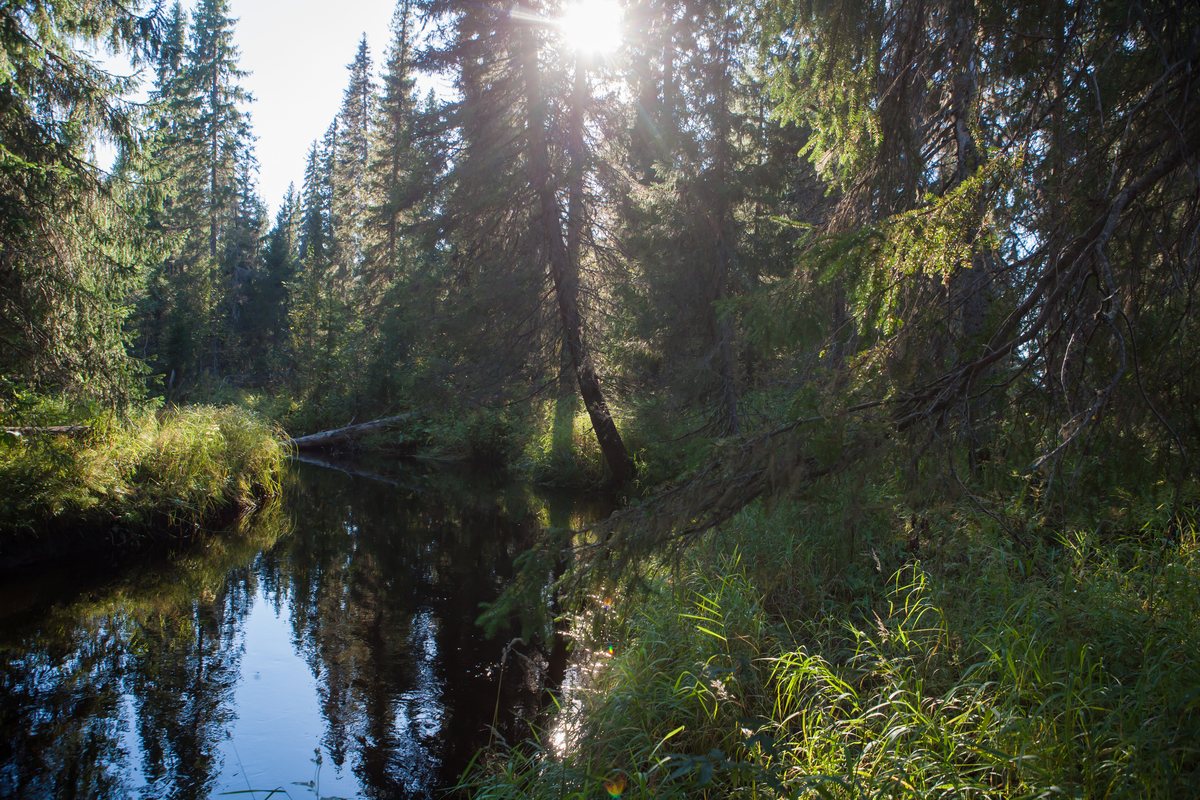
The narrow belt of old-growth forest along the stream – the so called “water protection zone” according to Russian national legislation is left untouched inside the clearcut area.
With the launch of Greenpeace’s Great Northern Forest campaign late last year, it should have come as no surprise to companies buying products from the destruction of this vast boreal forest ecosystem that our campaigners would soon be knocking on their doors calling for urgent action.
In early March, the campaign launched a major investigative report into the destruction of the last remaining Intact Forest Landscapes (IFLs) in the Arkhangelsk region of northwest Russia. It named many of the customers of the logging companies and mills involved in this destruction – which all have certification from the Forest Stewardship Council (FSC).
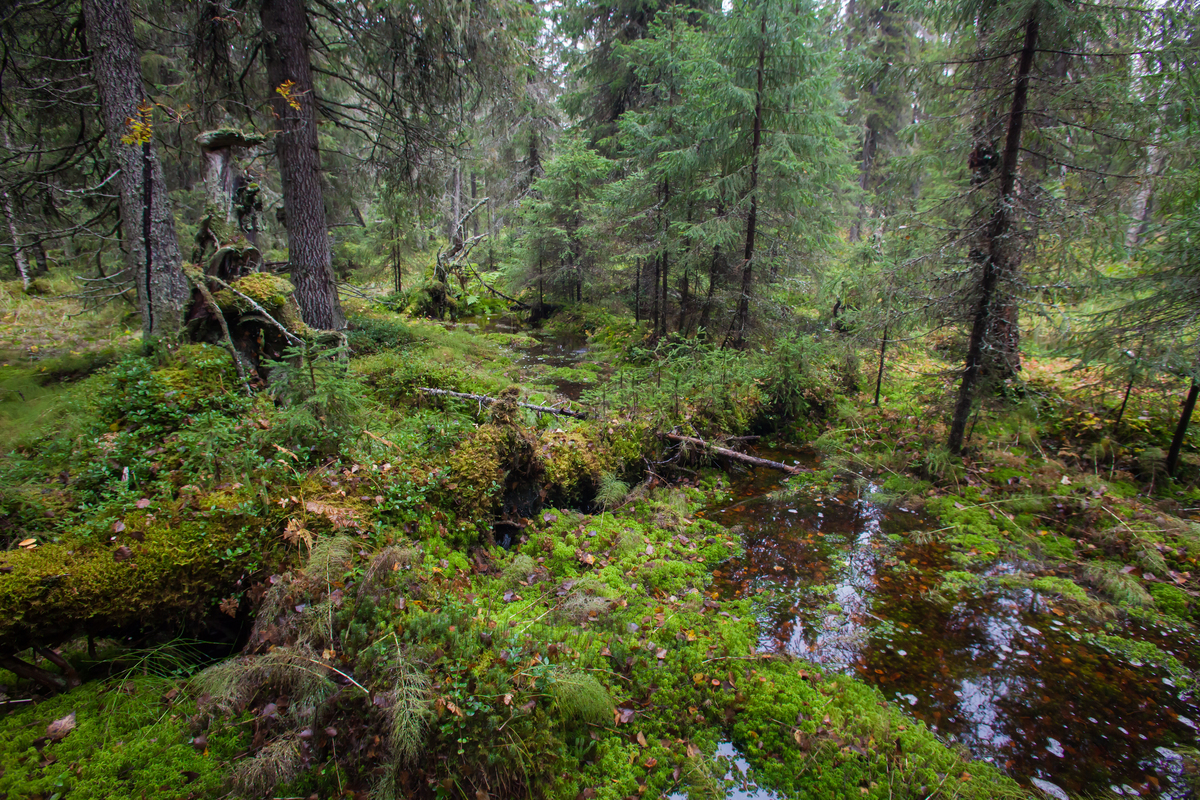
Old-growth spruce-dominated forest with abundance of dead wood, within an intact forest landscape.
A month after the launch of our Eye on the Taiga report, the Russian division of the FSC posted a response to the report on its website. Whilst FSC Russia doesn’t explicitly agree with our conclusion that there needs to a complete phase out of the logging of IFLs in Arkhangelsk, the organisation at least appears to recognise that there needs to be a shift away from the business-as-usual ‘timber mining’ of these valuable primary forests as highlighted in the report. (Once logging companies have extracted the harvestable wood from one area, they simply move their operations to a new area, with no regard for the long-term management of the forest).
In its conclusions, FSC Russia agreed that bringing about a logging industry transformation in Arkhangelsk, while helping to establish the Dvinsky Forest Reserve, customers of FSC-certified companies in the region could be putting pressure on these companies to help bring about these much-needed changes.

Russia Designated protection area in the Dvinsky forest, Arkhangelsk region, Russia. The Dvinsky forest is one of the last intact forest landscapes in the European part of Russia.
Even before the launch of the report, Greenpeace campaigners across Europe have been engaging with companies named in the report to request that they take immediate action. To date, the responses have been mixed — from stone cold silence (eg Arctic Paper) or ‘we have a policy to source paper that is produced sustainably’ type response (eg Smurfit Kappa) to ones where companies (eg Nestlé, Stora Enso, SCA) are actively engaged and starting to put pressure on their suppliers, exactly as proposed by FSC Russia. Some are arranging field visits to help them come up with an appropriate action plan.
However, further customer pressure is urgently needed on Pomor Timber, Titan and Arkhangelsk Pulp & Paper (APPM), particularly concerning the creation of the Dvinsky Forest Reserve. Greenpeace now understands that for the reserve to be formally established by the end of 2017 – the ‘Year of Natural Protected Areas and Year of Ecology’ in Russia – these companies need to give their formal support for the planned Reserve by end of June 2017 at the very latest. So time is rapidly running out.
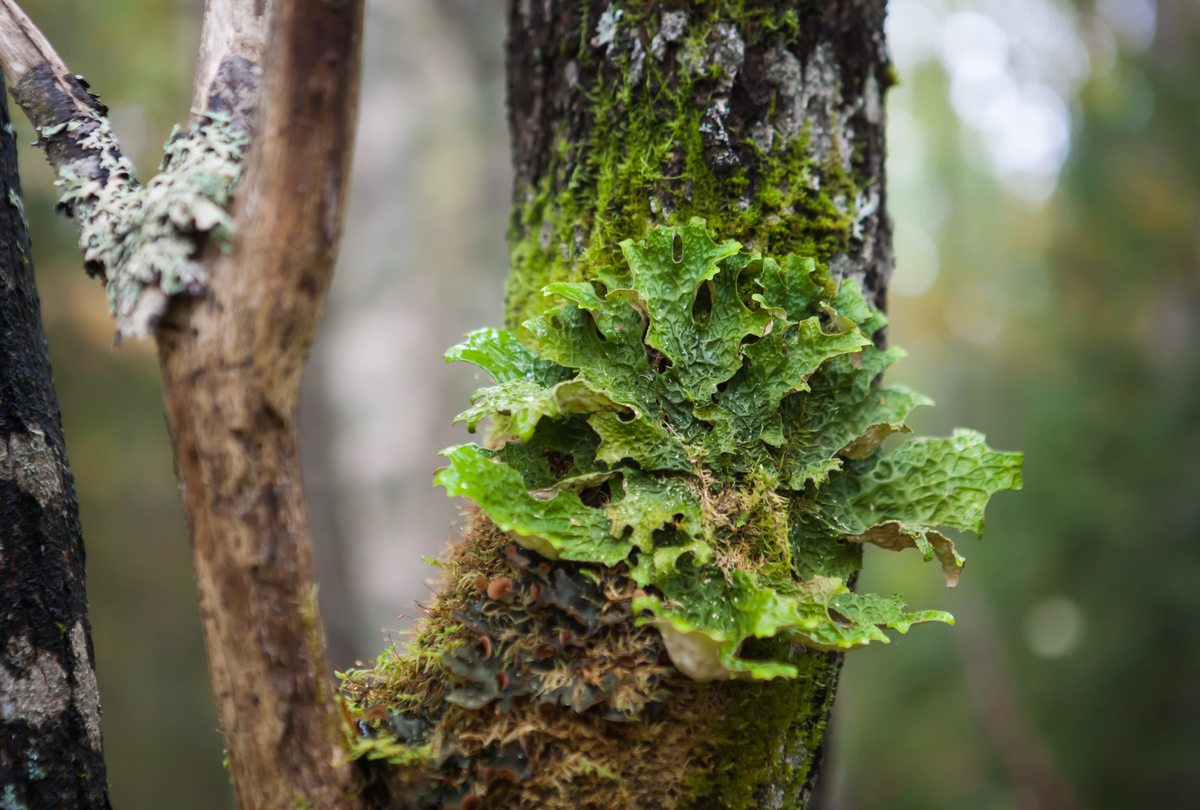
Lobaria pulmonaria – red-listed lichen.
Given the urgency of this situation, and in light of the FSC Russia statement, Greenpeace is requesting that the customers of the three companies demand that their suppliers publicly support the planned reserve, based on the 2011 proposed 489,000-hectare boundary.
If they do not publicly support the planned reserve by end of June 2017 – along with making progress to address the other issues outlined in the Eye on the Taiga report – Greenpeace is highly likely to ask customers to suspend contracts with these companies until they make significant progress on such issues. This is where a boycott campaign would need to kick in… stay tuned for further reports.
Alexey Yaroshenko is a forests campaigner with Greenpeace Russia

